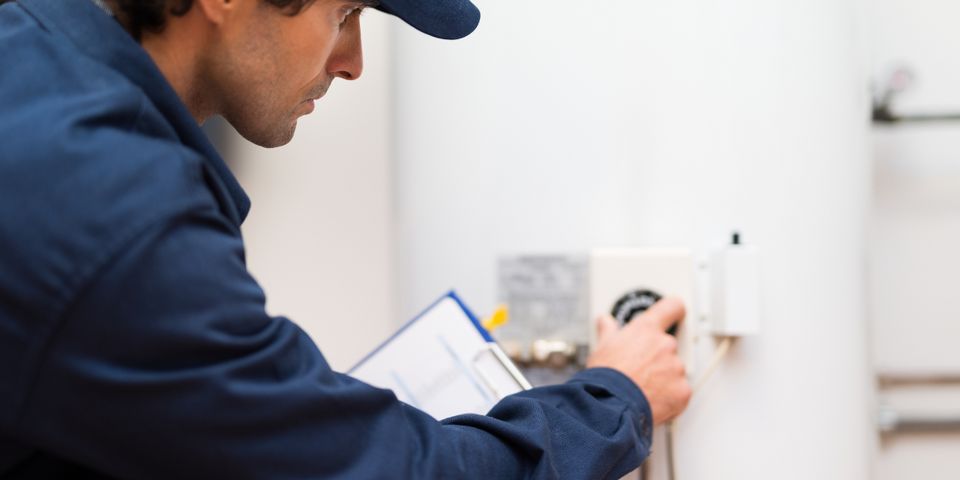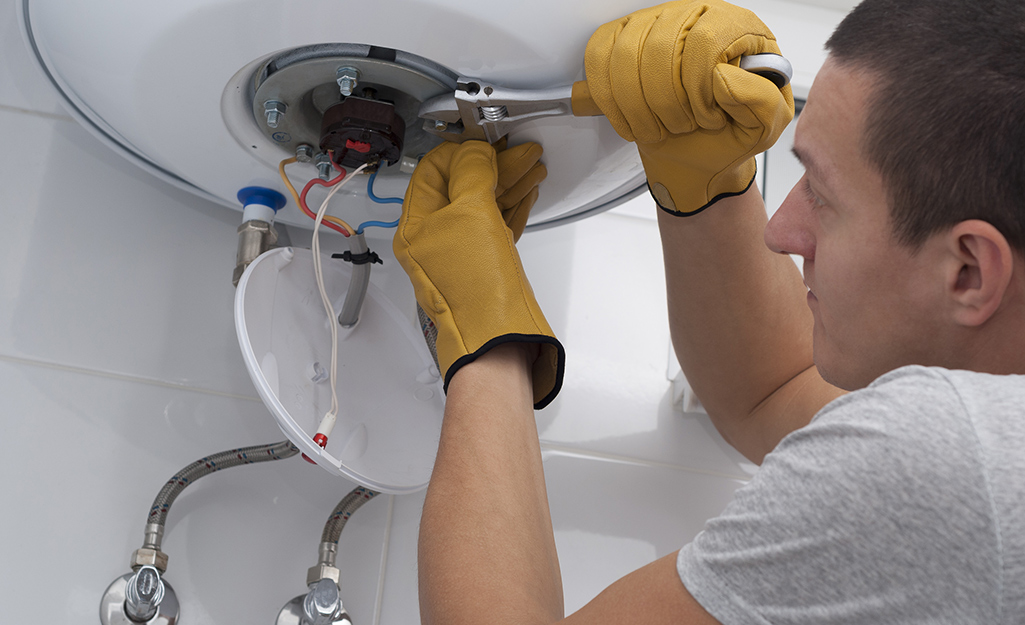Responding to the Frequently Arising Water Heater Urgent Problems
Responding to the Frequently Arising Water Heater Urgent Problems
Blog Article
The article author is making several good pointers about The Importance of Water Heater Maintenance as a whole in this article beneath.

A water heater is one of the most essential standard devices that can be located in a residence. With hot water heater, you don't need to undergo the anxiety of heating water manually every single time there is a demand to wash, do the laundry, or the meals. There is always an opportunity that your water heating system would act up as with the majority of mechanical gadgets.
It is very important to note any little breakdown and also tackle it swiftly before points get out of hand. The majority of times, your hot water heater starts to malfunction when there is an accumulation of sediments as a result of continuous use. As a safety measure, regular flushing of your hot water heater is suggested to stop debris accumulation and prevent useful failing.
Usual hot water heater emergencies as well as exactly how to manage them
Leaking water heater container.
A leaky container could be an indicator of rust. It can create damages to the floor, wall surface as well as electrical tools around it. You could even go to threat of having your house swamped. In this circumstance, you ought to shut off your hot water heater, allow it to cool, and also carefully try to find the source of the trouble. At times, all you require to do is to tighten up a few screws or pipeline links in cases of small leakages. If this doesn't function and the leakage lingers, you could need to use the solutions of a technician for an appropriate replacement.
Fluctuating water temperature.
Your hot water heater might begin creating water of various temperatures typically ice cold or hot warm. In this situation, the first thing you do is to make sure that the temperature level is readied to the desired level. If after doing this, the water temperature level keeps changing throughout showers or various other tasks, you may have a damaged thermostat. There could be a need to replace either the heating or the thermostat device of your water heater.
Insufficient warm water
Managing an inadequate supply of warm water can be discouraging. It may be that the water heater can't sustain the warm water need for your house. To handle this issue, you could try to adjust your heating unit's temperature level dial and await a few minutes. If the problem lingers, you can ask for the help of a specialist plumber. You can update your water heating system to one with a larger capacity.
Tarnished or stinky water
When this happens, you require to recognize if the problem is from the tank or the water resource. If there is no funny scent when you run chilly water, then you are particular that it is your water heating system that is damaged. The stinky water can be created by corrosion or the accumulation of bacteria or sediments in the water heater tank.
Verdict
Some home owners disregard little warning as well as minor faults in their water heater device. This only leads to further damage and a possible full breakdown of your home appliance. You need to manage your hot water heater mistakes as quickly as they come near prevent even more costs as well as unneeded emergency troubles.
With water heaters, you don't require to go through the stress of home heating water by hand every time there is a requirement to take a bathroom, do the laundry, or the recipes. Your water heating system might begin creating water of various temperatures usually ice cool or hot warm. It may be that the water heating system can't sustain the hot water demand for your apartment. If there is no amusing scent when you run cold water, then you are certain that it is your water heating system that is defective. The smelly water can be caused by corrosion or the buildup of germs or sediments in the water heater container.
Water Heater Burst: Why This Happens And What To Do Next
Water Heater Explosion Warning Signs
Since storage water heaters are made of metal and store large volumes of heated water, they carry an increased risk of leaking or even exploding as they begin to rust at the fittings and seams over time. If the thermostat controlling the water temperature within the tank is faulty, or if mineral buildup inside the water heater prevents the thermostat from sensing the water’s temperature correctly, the water could become overheated. This will expand its volume within the tank, causing it to press at the tank’s fittings and seams. If these fittings and seams are rusted or corroded, the pressure could result in a leak or even an explosion.
Here are some risk factors and warning signs of an increased risk of water heater leak or explosion:
Your water heater is more than 10 years old. Your water heater makes clanking, banging or rumbling noises as it heats up, indicating that sediment has built up and hardened inside the tank. There is visible rust on the outside of the water heater, especially located at the pipe fittings or the seams that run down the tank. There is rusty water coming from your water heater, indicating that there may be rust building up inside. Your water heater is leaking, which could indicate either a crack somewhere in the tank or a malfunctioning temperature-and-pressure (T&P) relief valve. What To Do When Water Heater Leaks
If you find water dripping or seeping out of your water heater, or pooling around it, it means your water heater is leaking. If you find a leak, it may be best to call a plumbing professional to diagnose the problem and determine how best to handle it. If you choose to tackle it on your own, there are a few things you can do.
TURN OFF THE POWER
Next, shut off the power to the hot water tank at your home’s electrical breaker box. If you don’t shut off the power, the heating elements within the tank could continue to stay hot, which could pose a fire risk.
If you have a gas-powered water heater, you’ll also need to shut off the gas line leading into the tank.
FIND THE LEAK
Now it’s time to determine where the leak is coming from. Likely locations are the T&P valve, the drain valve or one of the pipes or fittings that feed into the top of the tank. If you see any rust or corrosion on the outside of your water heater’s tank, pipes or fittings, these could also be the source of the leak.
REPAIR THE LEAK
Once you determine the source of your water heater leak, you’ll have a better idea of what steps you need to take to fix the problem. It may be a simple fix—such as using a wrench to tighten fittings or replacing the T&P valve—but it may be something more complicated. You may even need to drain the tank, remove the water heater and install a new one.
https://www.abchomeandcommercial.com/blog/water-heater-burst/

Hopefully you liked our section about The Importance of Water Heater Maintenance. Thank you for finding the time to read through our posting. Enjoyed our entry? Please share it. Help someone else locate it. Thanks a lot for your time invested reading it.
Free Quote Report this page